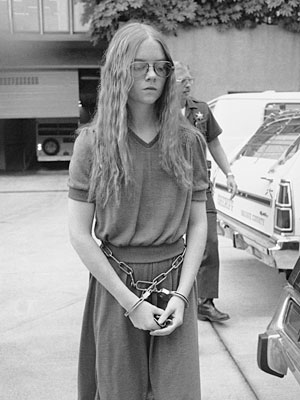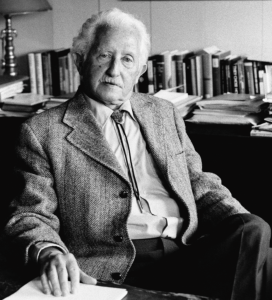“Ugh, it’s Monday” are the words that usually follow the arrival of the most dreaded day of the week. The sighs floating in the air are palpable and nothing seems possible. Mondays always carry with them a negative connotation and contain components such as depression, fatigue, and anguish. But to a San Diego elementary school, and to a troubled sixteen year old, Monday, January 29, 1979 held an even more distressing meaning.

Students at Grover Cleveland Elementary School, located in San Diego, California, began what they believed would be a normal Monday morning like any other, with bells ringing and students racing to their classes. Little did they know, however, that across the street, sixteen-year-old Brenda Ann Spencer was aiming her .22 caliber semiautomatic rifle right at society’s ultimate refuge, the elementary school, and its surroundings. After the first bell rang, Brenda broke the panels on the front door of her home, which was located right across the street from the elementary school. And she began to fire. The school’s principal, Burton Wragg, while rushing outside, was hit on the shoulder and chest with Spencer’s bullets and eventually died. Michael Suchar, the school’s custodian, ran outside with a blanket in order to cover Wragg and keep him from going into shock, but he quickly became the second victim of Spencer’s shooting and lost his life. In between all the chaos, 28 year old Robert Robb, a recent graduate of the police academy, while examining Wragg’s and Suchar’s bodies, was shot under his right shoulder blade.1 He would go on to survive though, along with the eight other children who were wounded in the incident. At least three of those children had abdominal wounds. A nine-year-old student, Cam Miller, was struck in the back with a bullet that exited through his chest without hitting any internal organs. Another, Christy Buell, was shot through her abdomen and in the buttocks, and had to undergo surgery in order to repair her intestine.2
When Gus Stevens, a reporter for the San Diego Evening Tribune, began calling around the area to gain more information about the shooting, he coincidentally placed a call to Spencer’s home where she gave him exactly what he wanted. She described the shooter, a sixteen year old, and the shooter’s address. When Stevens realized that she gave him her own address, he recognized what was going on and requested an interview while another staff member informed the police of the situation. The police, now aware of where the shots were coming from, were able evacuate the children and obstruct Spencer’s line of sight while trying to negotiate with her. After several hours, Brenda Spencer surrendered her weapon and several rounds of ammunition, and was subsequently arrested. While on the phone with Stevens, Spencer had stated that she was just shooting for the “fun of it.” She went on to say that she just didn’t like Mondays and did this “because it’s a way to cheer up the day.”3

Contrary to her initial claim, she later went on to state in her 2001 parole hearing that she had been “sexually abused by [her] father” and was “waiting for the cops to show up so they could shoot [her].”4 This new information has fueled many more theories today about Brenda Spencer’s true motives in committing such a crime. During her pretrial psychological testing, an injury to Spencer’s temporal lobe came to light. Spencer has also stated in a letter from prison that she experiences “grand mal seizures” that she has to counteract with medications.5 Such a brain injury would definitely be a precursor to epilepsy, which is two to four times more common among violent offenders than the public.6 The lack of treatment she received for this disease, to some, proves the neglect that she experienced from her family and in her childhood. Psychologist Jonathan Fast introduces the idea that her brain injury, abuse, and the effects of it pushed her to her final actions. He believes that the shame, ridicule, inferiority, and powerlessness that she felt encouraged her to go as far as she did. In another letter she wrote in prison, she stated that her “father had done everything a person could do to another person. The beatings, the touching, the emotional abuse.” She went on to state that no one, not teachers or counselors, gave her assistance through this, so she simply thought that this was how the world and how life worked. When her father gifted her the .22 caliber rifle, she thought that he was finally telling her to do it: to take her life successfully, unlike her past suicide attempts, and leave the world forever.7
Whether these theories are true or not, Brenda Spencer was tried as an adult and pleaded guilty to two counts of murder and nine counts of assault. She was sentenced to twenty-five years to life in prison, and is still serving her sentence at the California Institute for Women. The shooting has inspired a song by the Boomtown Rats called “I Don’t Like Mondays,” and has also gained other media coverage through a documentary.8 Her action went down in history as the first high profile school shooting and has become a vanguard to many future, unimaginable school situations and violent outbreaks. Whether Spencer was a cold-hearted killer or a truly lost and confused soul that simply wanted an escape, it is undeniable that her horrible actions have had some frightening consequences in our modern world.
- Jonathan Fast, Ceremonial Violence (New York: The Overlook Press, 2008), 25, 70-71. ↵
- Tamara Jones, “Look Back in Sorrow,” Good Housekeeping 227, no.5 (November 1998): 118. ↵
- Jonathan Fast, “Unforgiven and Alone: Brenda Spencer and Secret Shame,” in School Shootings: International Research, Case Studies, And Concepts For Prevention, ed. Nils Böckler (New York: Springer, 2013), 253-255. ↵
- Debra Sevey, “Subsequent Parole Consideration Hearing of Brenda Spencer,” (Capitol Electronic Reporting, 2001), 15-16. ↵
- Jennifer Furio, Letters From Prison: Voices Of Women Murderers (New York: Algora Pub., 2001), 134. ↵
- Jonathan Fast, ” Unforgiven and Alone: Brenda Spencer and Secret Shame,” in School Shootings: International Research, Case Studies, And Concepts For Prevention, ed. Nils Böckler (New York: Springer, 2013), 251. ↵
- Jennifer Furio, Letters From Prison: Voices Of Women Murderers (New York: Algora Pub., 2001), 134-135. ↵
- Encyclopedia of School Crime and Violence, September 2011, s.v. “Brenda Spencer,” by Laura L. Finley. ↵



243 comments
Victoria Davis
This girl was dealt a bad hand of cards at life and really knew know better that life was not supposed to be like that. I feel like school shootings have become a norm in our society today. Majority of these shootings have been accounted for by people that are mentally ill, but their people receive little to no help. Although they have done terrible things we need to fix the problems here.
Kathryn Martinez
My thing about her case is the fact that she gave the reporter her address. She willingly took the time to aim and shot across the street at the school. Even with her history of illnesses, this should give no excuse to the actions she had done. I agree that it is very tragic hearing about the things her father had done to her, but in the end, it gives no excuse to kill others.
Alin Bocardo Felix
Cases similar to this one in our modern world have spiked controversy. It is unacceptable to see the way many of these cases end, including this one, with a jury deciding on psychological issues. Many of these people, such as Brenda, may have issues and may have endured terrible abuse, but there is never a reason to do what she did. Many people suffer from different situations, but it is evident that certain people get the privilege of not being blamed for their actions, and having their life occurrences be blamed instead. Personally, I believe Sanders deserved a much higher sentence, but there are still many issues with the system.
Saira Locke
It seems as though in today’s society school shootings are a norm. We all know they will continue to happen. I had never actually heard of this case until just now reading and I really appreciate the immense detail provided. I really feel as though I have full clarity on the case. It makes me very relieved to hear that Brenda Spencer was tried as an adult. I feel as though no matter who you are at what age is irrelevant in cases like this. I’m happy that the two men murdered and children wounded quickly gained justice.
Patricia Arechiga
Though this case is tragic, what I find most disturbing is the fact that Brenda had severe mental issues and received little to no help. Guns are now commonly being found under the possession of young individuals who are not yet fully mentally developed. School shootings are becoming what almost feels like a norm which is probably the most tragic thing one could possibly say. As a country and world, we need to start helping people who sustain mental health issues.
Bianca-Rhae Jacquez
This is the first time ive heard of Brenda Spencer and of this school shooting. It is hard to know that someone would do all of this just because they hate Mondays. There could’ve been other ways for her to express her frustrations like calling in. There isn’t any valid reason for someone to hurt and endanger children’s lives.
Samantha Ruvalcaba
It’s unbelievable that this is one of those school shootings that gets swept under the rug and grouped in with the rest around the country. Whatever the motive of Brenda Spencer was, so many individuals should not have suffered. Overall, great piece, I hope that we continue to look at what it is that is making these students want to inflict such pain and horror.
Rebeca Escobar
This is the first time I’ve heard of Brenda Spencer, but it’s definitely not my first time hearing of a school shooting. What goes through these peoples minds is beyond comprehension and empathy. What’s sad is this stuff is so normal now, and it’s only sad when school shootings occur but no longer surprising. I wish these people could seek help in ways where it does not involve harming or killing others.
Nadia Carrasco
School shootings are something terrible that sadly has been happening more then often lately. But, I had never heard of this school shooting before. I found it hard to believe how someone could put kids life in danger just because of the simply fact that they hate Mondays. Having personal experience with several lockdowns for a potential school shooting I can say it is never a joking matter. School admin take the lives of their students and staff very seriously. This article was a very touchy topic and the author did a great job going about it.
Leeza Cordova
This case is not often talked about, and many times it is overlooked. I think that there could have been many things wrong with her, and most times, most events are linked back to childhood trauma. One of the statements that stood out to me the most was the line where she talked about her father gifting her the weapon and how she saw it as a chance to take her own life, when it could have been interpreted in many different ways.